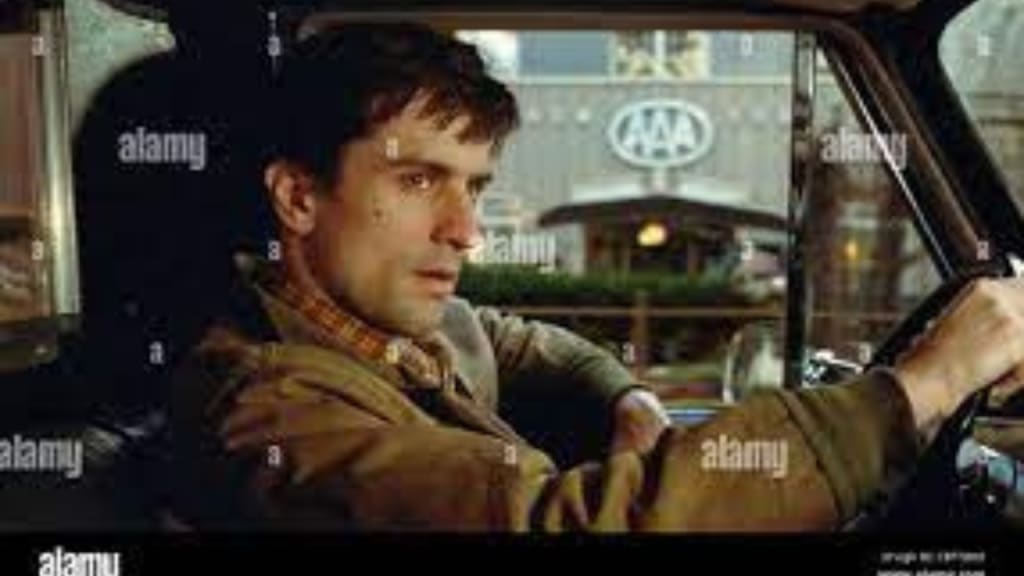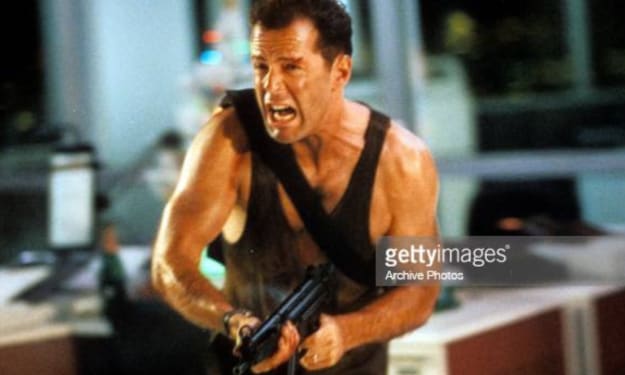Taxi Driver (1976) Review
1976 American neo-noir psychological drama thriller film directed by Martin Scorsese

Taxi Driver, directed by Martin Scorsese and starring Robert De Niro, is a masterpiece of American cinema that has endured as a cultural touchstone since its release in 1976. The film tells the story of Travis Bickle (De Niro), a Vietnam War veteran who works as a taxi driver in New York City. As Bickle drives through the seedy streets of the city, he becomes increasingly disillusioned with the society he sees around him, and begins to plot a violent and ultimately tragic course of action.
One of the key strengths of Taxi Driver is its uncompromising, gritty portrayal of urban life in 1970s New York City. Scorsese and screenwriter Paul Schrader (who drew on his own experiences as a cab driver to create the character of Bickle) capture the city's gritty, dangerous atmosphere with an unflinching eye. The film's use of locations like Times Square and the Lower East Side, along with its vivid depiction of the city's underbelly, give the film a sense of authenticity and immediacy that makes it a powerful and unforgettable experience.
At the center of Taxi Driver is De Niro's towering performance as Bickle. De Niro fully inhabits the character, imbuing him with a mix of vulnerability, rage, and madness that is both mesmerizing and deeply unsettling. Bickle is a fascinating and complex character, one whose motivations are at once mysterious and all too clear. De Niro's commitment to the role is evident in every scene, and his performance has rightfully earned its place as one of the greatest in American cinema.
The film's supporting cast is equally impressive. Jodie Foster, in one of her earliest roles, plays Iris, a teenage prostitute whom Bickle becomes fixated on rescuing. Foster gives a nuanced and empathetic performance, capturing the character's pain and vulnerability without ever veering into sentimentality. Cybill Shepherd, as Bickle's love interest, is also excellent, bringing a sense of world-weary cynicism to her role that contrasts well with De Niro's intensity.
Taxi Driver is also notable for its stunning visual style. Scorsese's use of color and light gives the film a distinctively moody and atmospheric feel, and his frequent use of slow motion and unconventional camera angles adds to the film's sense of unease. The film's famous "tracking shot" through the crowded streets of New York City is a masterclass in filmmaking, and is still talked about and studied by filmmakers today.
At its core, Taxi Driver is a deeply disturbing and unsettling film. The film's exploration of violence, isolation, and mental illness is unflinching and uncompromising, and its ending is one of the most unforgettable and haunting in cinematic history. Yet even as the film explores these dark themes, it is also a deeply humanistic work, one that explores the depths of human suffering and the search for meaning and connection in a chaotic and indifferent world.
Taxi Driver has had a profound influence on American cinema, inspiring countless imitators and influencing a generation of filmmakers. Its exploration of urban alienation and existential despair has become a defining theme of American cinema, and its themes continue to resonate with audiences today. The film's enduring popularity and critical acclaim are a testament to its power and importance as a work of art.
In conclusion, Taxi Driver is a cinematic masterpiece that continues to captivate and unsettle audiences over four decades after its release. Scorsese's masterful direction, De Niro's unforgettable performance, and the film's gritty, atmospheric portrayal of urban life make it a landmark of American cinema. The film's exploration of violence, isolation, and mental illness is both disturbing and deeply humanistic, and its themes continue to resonate with audiences today with its uncompromising portrayal of urban life, towering performances, stunning visual style, and exploration of dark themes, Taxi Driver stands as a true masterpiece of American cinema. It is a film that continues to captivate and unsettle audiences over four decades after its release, a testament to its power and importance as a work of art. Scorsese's direction and Schrader's script are both masterful, and the film's exploration of violence, isolation, and mental illness is both disturbing and deeply humanistic. De Niro's performance as Travis Bickle is a towering achievement, one that remains one of the greatest in American cinema. The film's impact on American cinema is impossible to overstate, and its themes continue to resonate with audiences today. It is a film that should be seen by anyone with an interest in cinema, and a work that will continue to inspire and influence generations of filmmakers to come.





Comments
There are no comments for this story
Be the first to respond and start the conversation.